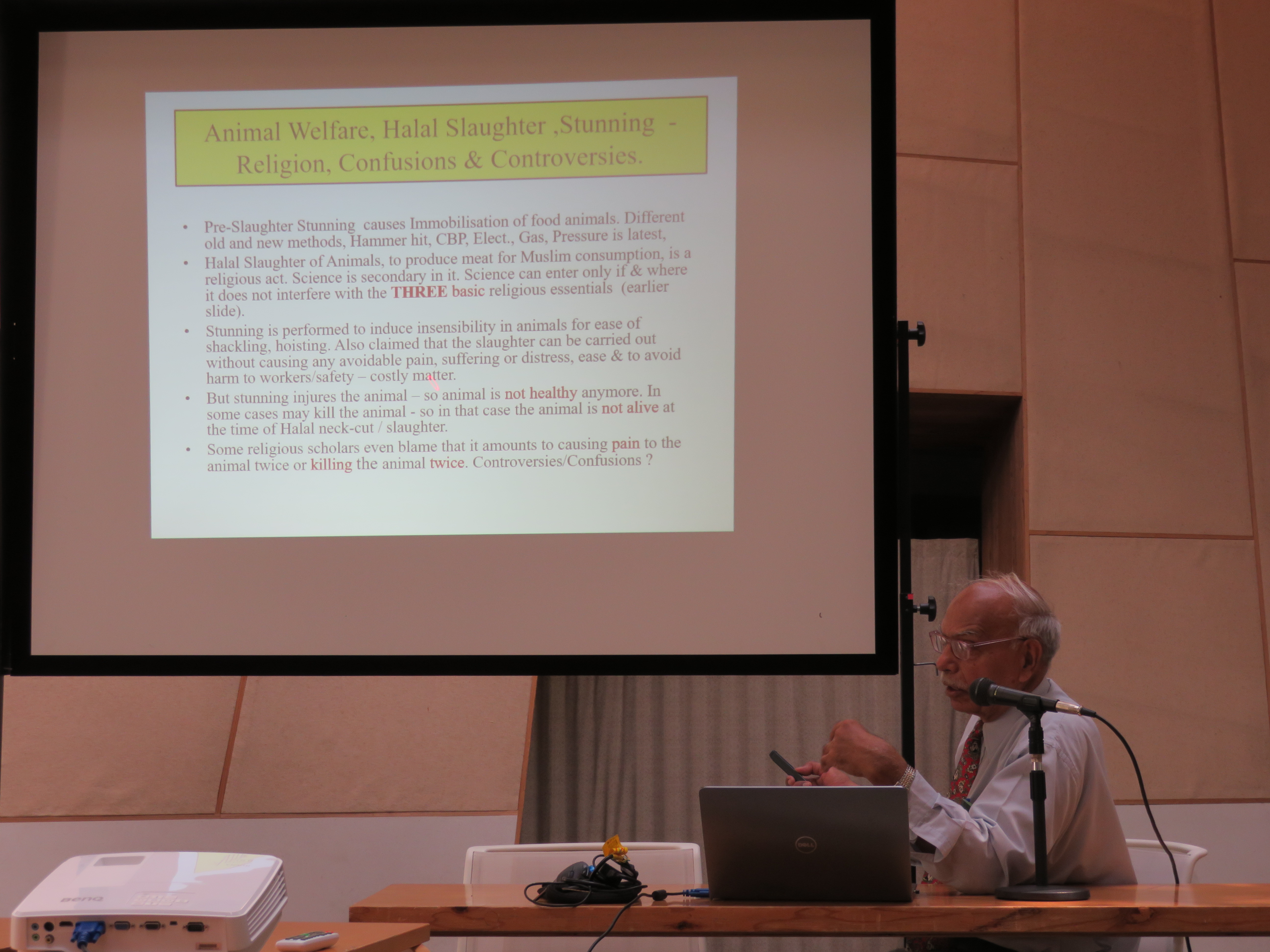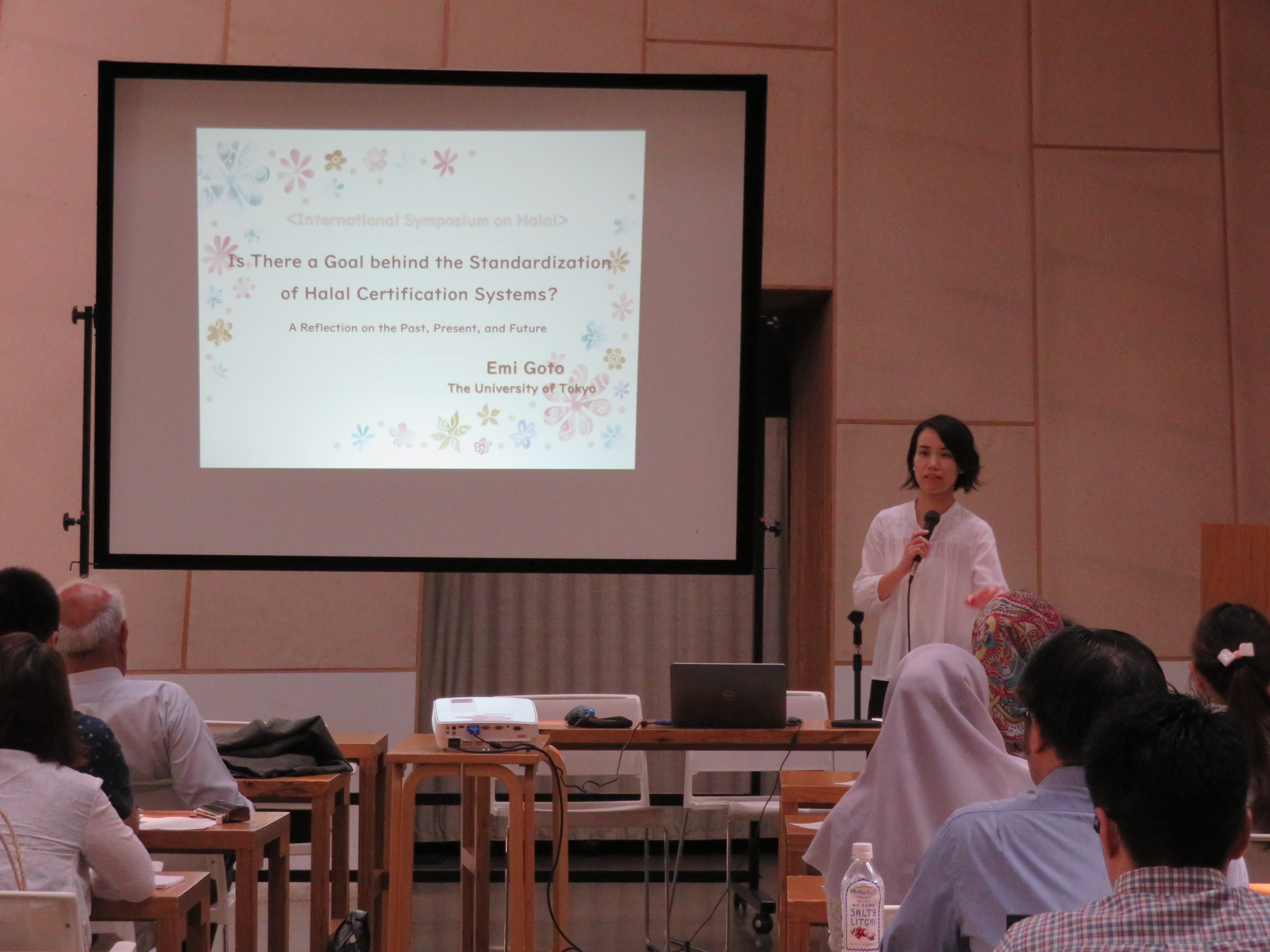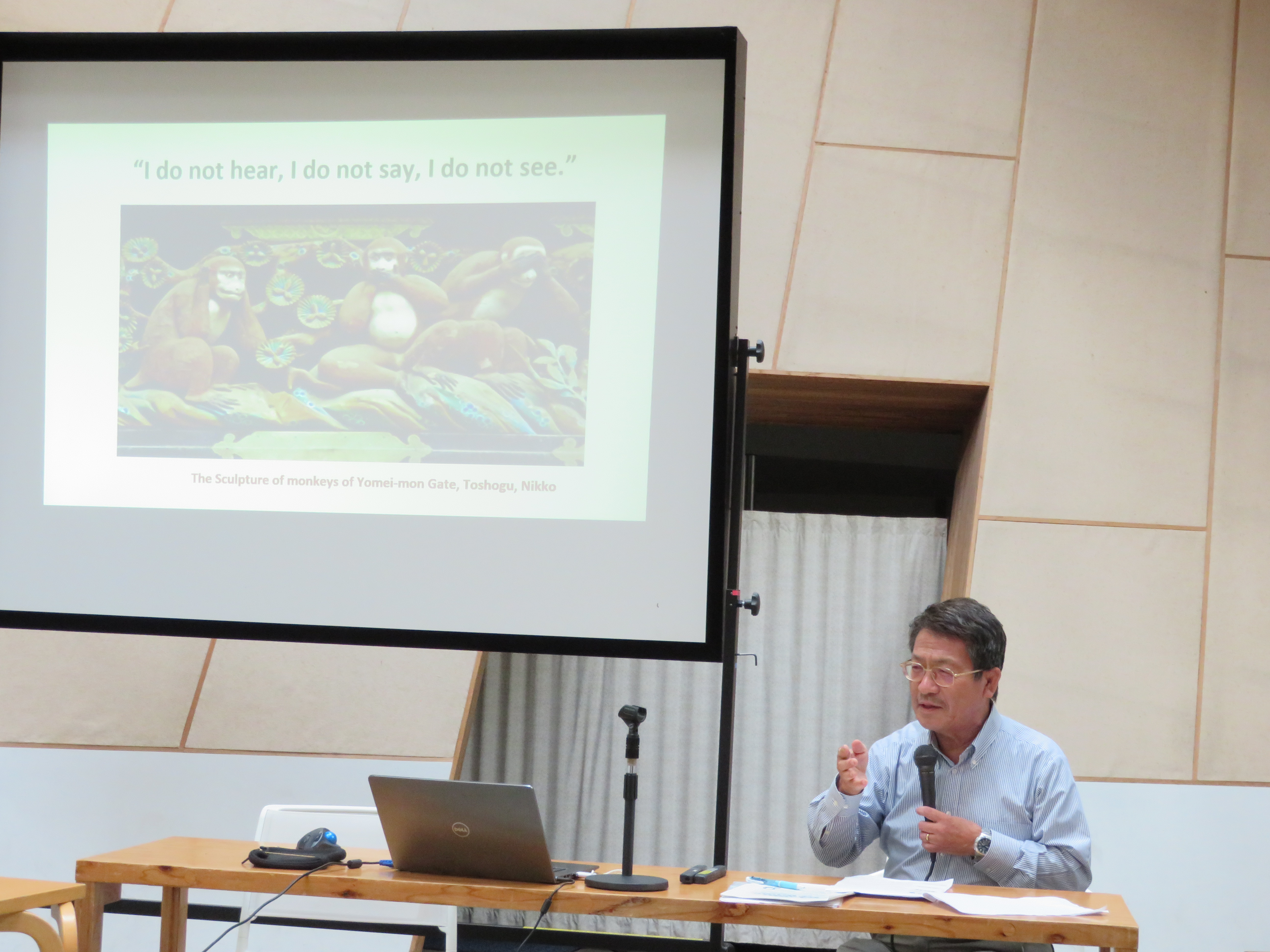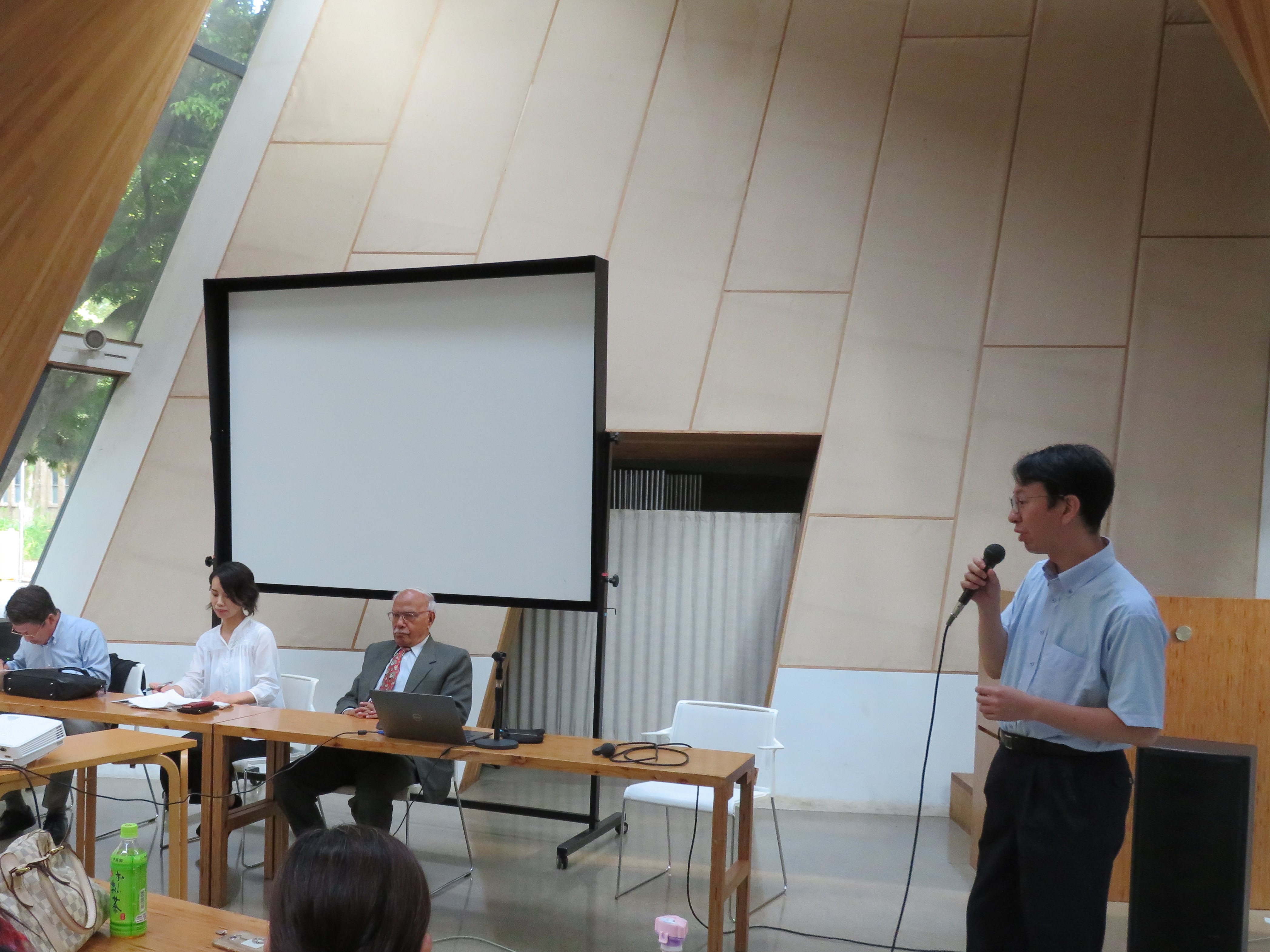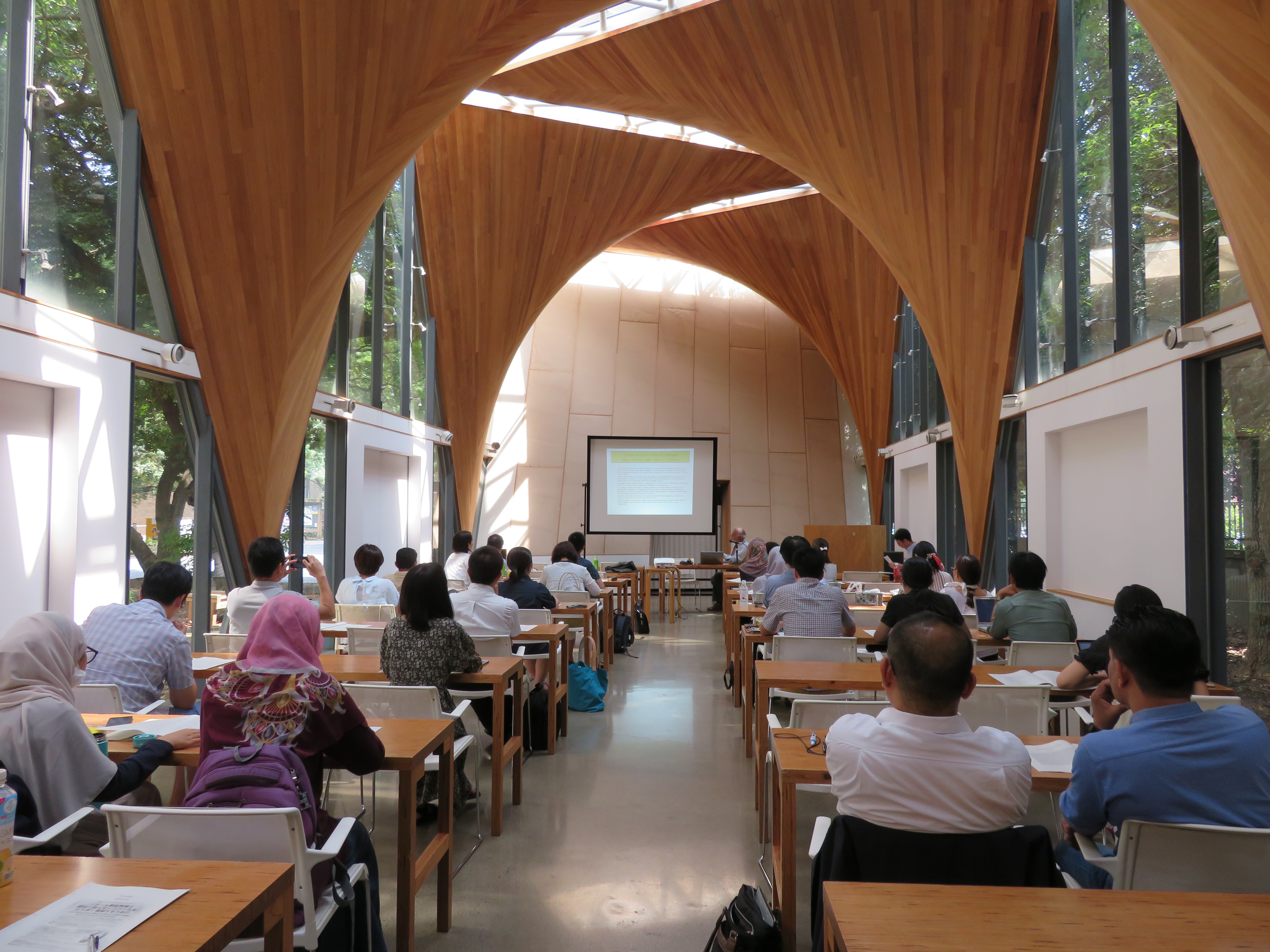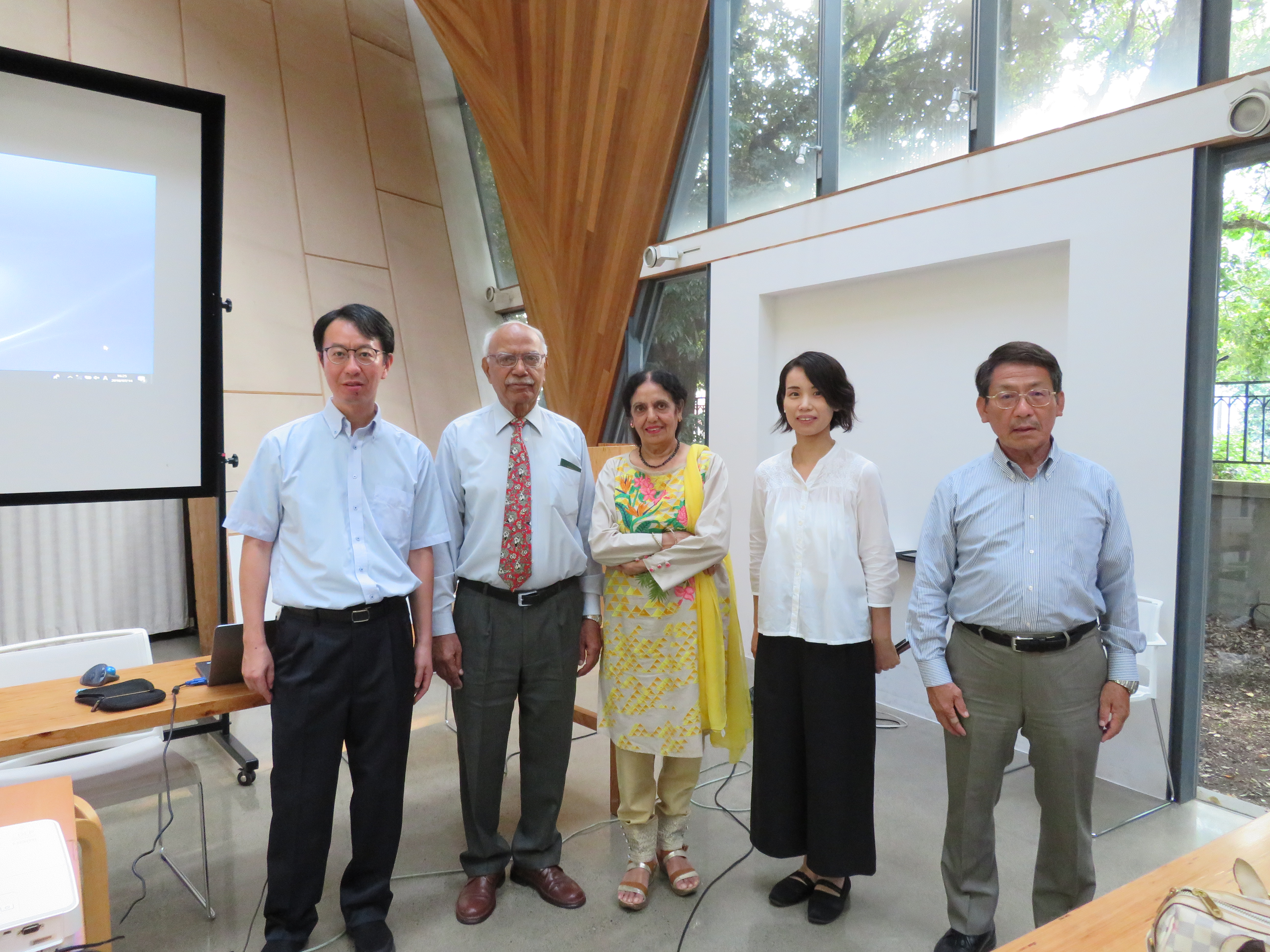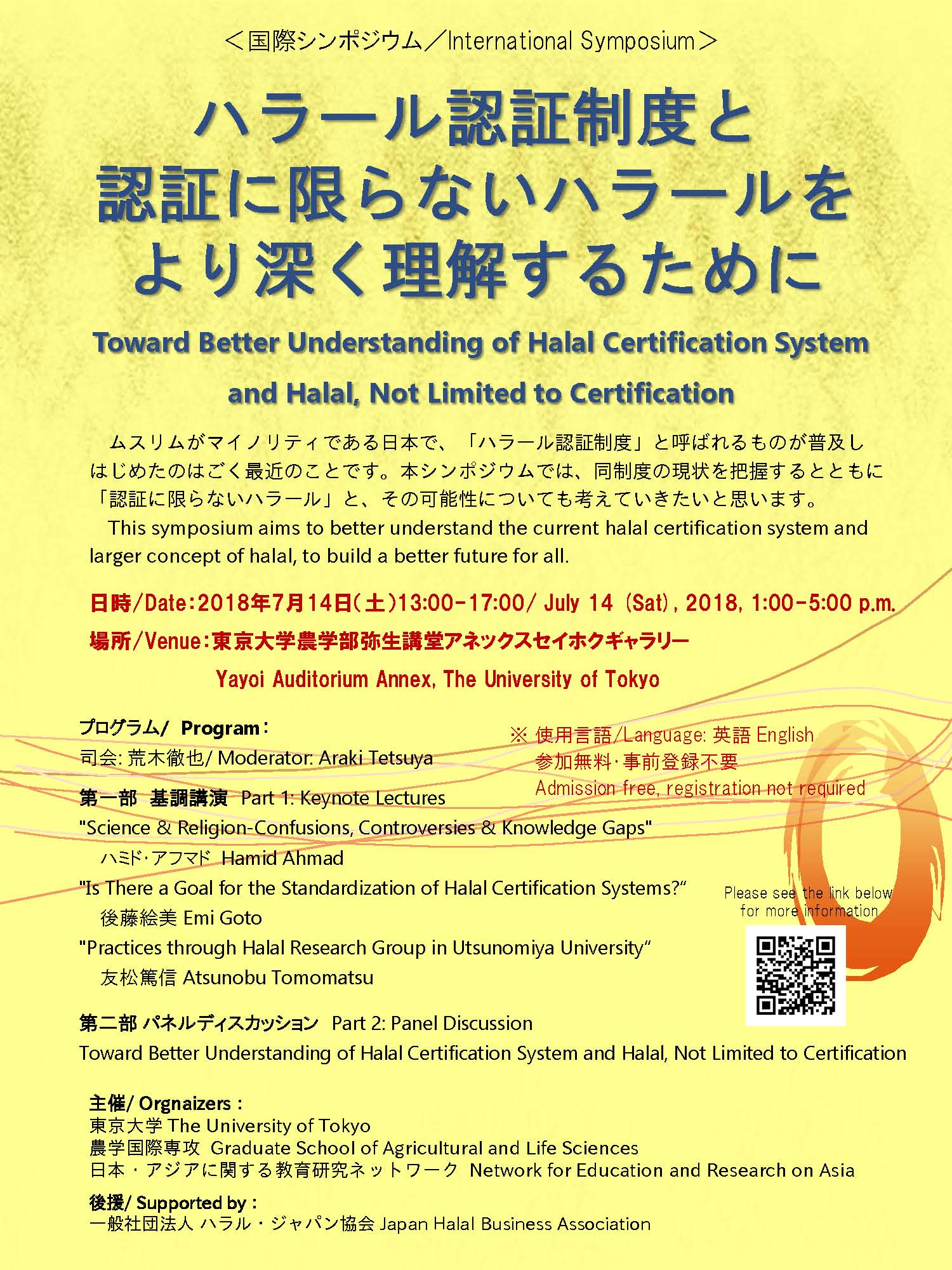July 14th International Symposium “Toward Better Understanding of Halal Certification System and Halal, Not Limited to Certification” was held.
The symposium was attended by over 30 researchers, business people, and students. Below are the reports of the symposium written by UTokyo students.
——
【Report 1】
This symposium comprised three subjects: a) the concept of halal (focusing on meat slaughter) by Dr. Hamid, b) the history of “halal certification” by Dr. Goto, and c) the case study of Utsunomiya University Halal Study Group by Dr. Tomomatsu. The subjects included both theoretical and practical descriptions to ensure that those who had no knowledge of halal would understand.
In Dr. Hamid’s words, the common theme among the three speakers was that halal certification is business-oriented, and it should become human-oriented. Originally, issues on halal depended on individual Muslims; however, halal certification applies to businesses that require “standardization” of halal, so it ignores various practices regarding halal food performed by Muslims. Ironically, halal certification movements have advanced halal discussions; therefore, in my opinion, we need to consider halal certification an “unpleasant but necessary” process, and improve certification systems so that Muslims can consume foods with confidence.
Therefore, how can halal certification be improved? Before participating in this symposium, I believed establishing trustworthy relationships among Muslims and non-Muslims was important. However, during the panel discussion, a Muslim stated that trust is no longer valid because one of his friends untruthfully told him that non-halal food was halal. Accordingly, I recognized the need to employ knowledge of Islamic law (Shar?‘a) and the scientific technology that halal certification institutions have developed. Therefore, the agenda currently is to establish networks between several Islamic scholars (‘Ulam?’) and specialists of scientific technology who provide information about halal, and ensure the information is comprehensible for Muslims and non-Muslims.
Nozomi TAJIMA (Graduate School of Arts and Sciences, Anthropology)
【Report 2】
In this symposium, three speakers, Mr. Hamid, Associate Professor Goto, and Professor Tomono, gave lectures on and discussed not only the certification of Halal, which has recently spread across the globe with the Halal food business, but also popular perceptions and contradictions related to Halal and its future.
Dr. Hamid’s keynote on the relationship between Halal and ethical issues focused on Pre-Stunning Slaughter, the process by which animals are stunned with electrolyzed water before slaughter, and presented discussion regarding Islam and modern technology in the second half of the 20th century. He suggested that in order for meat processing practices to align with the “correct” interpretation of Halal, they should be approached using appropriate technology to process Halal meat. According to his lecture, slaughter by Muslims, who decapitate animals rapidly and cleanly, enables animals to be processed into the highest-quality and safest meat. In addition, this rapid slaughter process should be a focus to prevent cruelty to animals. His discussion leads to a purposive interpretation of the coordination between beliefs of Islam, such as that which is found in Quran 5:3, which provides parameters on how to be Halal, and aspects of modern societal needs, such as the effectiveness of the meat industry and animal rights.
Related to this interpretation of Halal, Associate Prof. Goto summarized the contingencies and plurality of interpretation in Islamic law and pointed out that the thorough certification of Halal might lead to discrimination. This means that marks which indicate Halal certification might run the risk of causing some people in the community to regard others as aliens and exclude them. Therefore, she suggested the minimalization of Halal certification requirements.
Debates on Halal do not address newly modern technology as often as those on assisted reproductive technology. Thus, the problems have not often been addressed before, but the penetration of Halal business around the globe has activated the debates on this topic. Accordingly, as presented in the keynote of Associate Prof. Goto, governments such as Malaysia and the UAE have established and revised the technical guidelines on Halal certification in detail. These guidelines impose more regulations on people than the verses in the Quran. However, such a legal interpretation is required in order for Muslims to live in modern society. Therefore, the problems related to Halal should not be discussed in the context of the detailed system of certification and business and should instead be focused on how Muslims should live with modern technologies, which could hardly have been addressed in the verses contained in the Quran, as they emerged in the Arabic Peninsula in the 7th century.
Yuta HAYASHI (Graduate School of Humanities and Sociology, Islamic Studies)
【Report 3】
I conduct research in the area of Korean Studies and had little knowledge of halal and Muslims. Therefore, I attended this symposium, which addressed the theme of the panel discussion.
“Eating is a matter of faith in Islam”. Dr. Hamid’s words gave me a new perspective. With this phrase in mind, we should understand that the halal food system is not just a commercial viewpoint. Thus, as Dr. Tomomatsu said, non-Muslims, which are the majority in Japan, must also experiment with religious approaches instead of scientific approaches. When I try to gain a deeper understanding of ‘halal’ using a religious approach, one question arises: if halal is a key concept, should it not be understood in the context of the relationship between humans and God (ib?d?t)? How can we non-Muslims understand halal?
Dr. Goto’s lecture provided clues for my consideration. Guidelines and manuals in the Halal food sector issued by the Department of Islamic Development Malaysia (JAKIM) have become increasingly rigid and strict in recent decades. This movement has resulted in the improvement of science and technology. By the same token, guidelines and manuals indicating certain standards are also constantly changing. After all, these guidelines are man-made in a persistent manner.
To develop our current knowledge such that it aligns with the concepts discussed in “Toward better understanding of Halal Certification System”, it is not only necessary to rely on the guidelines, but also to ask the opinions of Muslims themselves. In fact, suggestions from customers are generally welcome when one tries to improve the quality of service. Some non-Muslims may create many accounts of the Halal Certification System and its certification mark to show their good faith toward Muslims. However, based on the keynote lectures and the opinions provided in this symposium, depending too much on the manuals and certification mark could create more of a barrier than an aid for non-Muslims’ understanding of the topic.
Konatsu SHIGEOKA (Graduate school of Humanities and Sociology, Korean Studies)
——
(Announcement)
International Symposium
Toward Better Understanding of
Halal Certification System and Halal, Not Limited to Certification.
There is said to be international trade of about US$ 1.3 trillion in halal food and much larger volumes in non-food halal products. Nevertheless, it is just in recent years that halal certification system began to emerge and be adapted in Japan as a region of Muslim minority. Also, it was during these ten years that some international guidelines on halal food have been sought and applied in the global trade.
Eating is a matter of faith in Islam. Muslim dietary practice is fundamentally the act of obeying God. Many gaps remain in between “halal – not limited to certification” as behaviors on the basis of Islamic faith and “halal certification system,” in which what is halal food is stipulated. However, insufficient background knowledge often leads to confusions, and misleads non-Muslims to believe that certified halal is the only true halal.
This symposium aims to better understand halal food system, halal certification system, and halal through keynote lectures and panel discussion, inviting domestic and overseas experts and researchers. This symposium also provides an opportunity for knowledge seekers in halal sector to acquire useful findings.
| Date | July 14 (Sat), 2018, 1:00-5:00 p.m. |
|---|---|
| Venue | Yayoi Auditorium Annex, Graduate School of Agricultural and Life Sciences, The University of Tokyo |
| Program | Moderator: Tetsuya Araki (Associate Professor, Dept. Global Agricultural Sciences, The University of Tokyo) 13:00~15:00 Part 1: Keynote Lectures 13:00~13:40 Food for Thought: The Halal Food System – Science & Religion-Confusions, Controversies & Knowledge Gaps Hamid Ahmad (Ex-Head / Principal Scientific Officer, Meat & Livestock Products Research Laboratory, Food & Biotechnology Research Centre, Pakistan Council of Scientific & Industrial Research (PCSIR), Ministry of Science & Technology, Govt. of Pakistan; United Casing Corporation, Pakistan) 13:40~14:20 Is There a Goal for the Standardization of Halal Certification Systems? A Reflection on their Past, Present, and Future Emi Goto (Associate Professor, Network for Education and Research on Asia, The University of Tokyo) 14:20~15:00 Toward Better Understanding of Halal: Practices through Halal Research Group in Utsunomiya University Atsunobu Tomomatsu (President, F&T JAPAN; Professor Emeritus, Utsunomiya University) 15:00~15:30 Coffee Break 15:30~17:00 Part 2: Panel Discussion Toward Better Understanding of Halal Certification System and Halal, Not Limited to Certification Moderator: Tetsuya Araki Panelists: Hamid Ahmad Atsunobu Tomomatsu Emi Goto |
| Language | English |
| Organizers | The University of Tokyo Graduate School of Agricultural and Life Sciences Network for Education and research on Asia |
| Supported by | Japan Halal Business Association |


